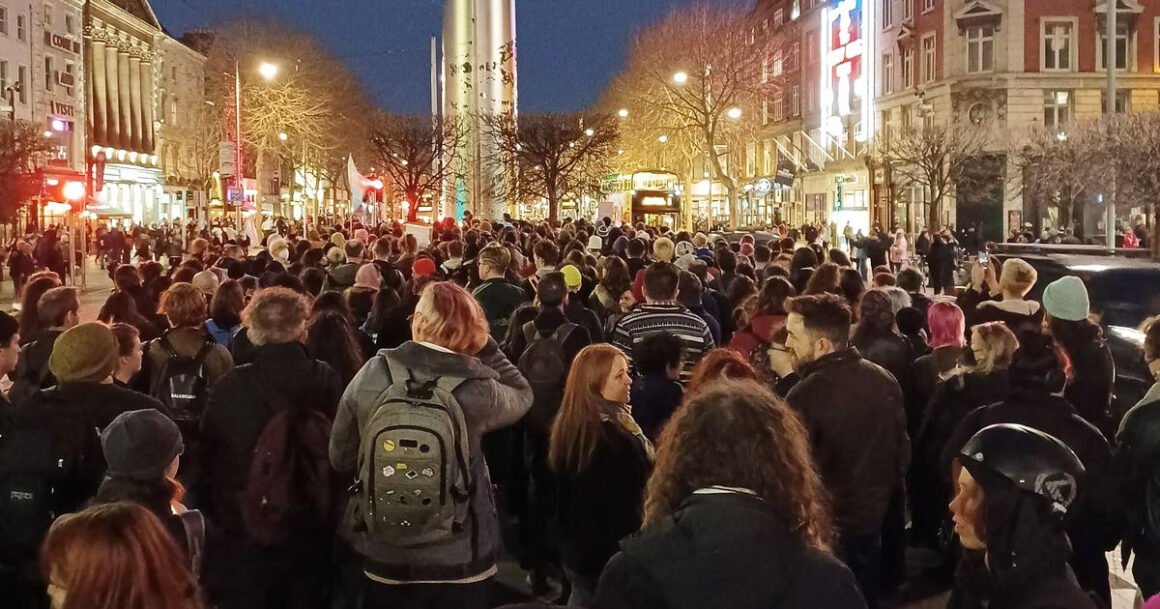By Morgan Shanless
On Saturday, 12 February, Brianna Ghey, a 16 year-old transgender girl, was brutally murdered by two 15 year-olds in a park in Warrington, England. In the weeks and months leading up to her death, Brianna was cruelly bullied over her trans identity, with close friends recounting the horrors she was put through on a daily basis for simply daring to be herself.
Despite the police knowing that Brianna was a victim of transphobic bullying, they are still refusing to acknowledge what is so clear to us in the queer community: that this is a hate crime. Brianna wasn’t even afforded peace in her death, with the notoriously right-wing and anti-trans Daily Mail ringing her dentist to access her medical records, with the sole intention of publishing her deadname. Once her dead name was discovered, the Times also updated its article to include it (although it was promptly removed after visceral backlash). Additionally, because England lacks a Gender Recognition Act, Brianna will be misgendered on her death certificate.
A clear hate crime
The outpouring of grief and solidarity from the queer community in both Britain and Ireland has been immense. Trans communities came together to organise countless vigils, with hundreds attending vigils in Dublin and Belfast.
This was a horrific tragedy, and it must be understood as part of the disgustingly transphobic climate that exists in England today, perpetuated by the right-wing political and media establishments. Between the Tories in government, so-called “debates” over our existence in the media, refusals of the police to acknowledge the obvious fact that this was a hate crime, trans people have been failed by every arm of the establishment.
Only a few weeks ago, the Tories utilised Section 35 for the first time ever to override Scottish democracy and prevent the passing of very moderate reforms to the Gender Recognition Bill. This disgusting and authoritarian move has been rightly condemned and compared to Thatcher’s introduction of Section 28 in 1988 and, similar to Section 28, this attack on trans rights is occurring at a period of intensely high class antagonism.
The right-wing are engaged in a concerted backlash against the feminist and LGBTQ wave that emerged globally in the past decade. This is to try to crush our struggles and the hope that they bring, but also it’s because the gender binary and backward gender roles are needed by the capitalist system – including via the patriarchal family structure and its role in reproducing the labour force for capitalism.
End transphobia!
Workers today are facing a cost of living crisis, a housing crisis, skyrocketing energy and food bills, real decreases in wages and many more. As strikes continue across Britain, it is only natural for the ruling class to scapegoat vulnerable minorities, whether that’s immigrants, trans people or any other minority, in order to sow divisions between working-class people. The working class will not find solace in the Labour Party either, under the hopelessly craven Keir Starmer.
The only way to effectively stamp out transphobia and all other forms of oppression is with mass struggle from below, for socialist change. We need to unite as a working class and fight the real enemy: those who profit from our exploitation. A united, multi-ethnic, multi-gendered working class has the power to change society by taking the power out of the hands of the 1% and into the democratic control of working-class people. Only under a system that prioritises human needs over private profits can queer, trans and women’s liberation be achieved.












